Tuesday, 03 July 2012 23:21

Foundation
for Human Rights Initiative (FHRI) is one of the NGOs that now face a
threat of closure after Ethics and Integrity Minister Rev Simon Lokodo
accused them of promoting homosexuality.
PATIENCE AKUMU spoke to FHRI executive director,
LIVINGSTONE SSEWANYANA,
on why NGOs cannot stay away from gay rights. Ssewanyana maps the way
forward for ‘blacklisted’ NGOs and explains why he believes this is more
than a fight against homosexuality.
Are FHRI and other NGOs that Minister Lokodo named promoting homosexuality?
We are involved in minority rights issues. We are saying that all
minorities, including homosexuals, deserve respect. Uganda has an
obligation to preserve the rights of every citizen. The Constitution
prohibits discrimination on all grounds — as does the International
Covenant on Civil and Political rights (ICPR). Uganda signed the ICPR
without any reservations. This means that it must respect all its
provisions.
Perhaps government is furious because you are recruiting people into homosexuality.
We are not recruiting. We do not actively encourage people to become homosexuals.
But how can you promote a right to what is already illegal under the Penal Code Act?
The Penal code needs a lot of reform. It is our duty [as civil
society] to campaign for reform. We are involved in other reforms, like
the campaign to restore [presidential] term limits. The law generally
needs to be reformed to promote non-discrimination.
The Constitution prohibits same-sex relationships, yet at the same
time says that there shall not be discrimination based on colour, race,
sex, religion or other factors. Such contradiction requires reform. The
Constitution contains other contradictions. For example, it provides
for the death penalty under Article 22, and then prohibits torture and
inhuman degrading treatment under Article 44. We work to reform several
areas of the law.
But for now, the law upholds the death penalty and prohibits homosexuality. Shouldn’t you respect that?
We acknowledge that that is the law, but we are also saying that this
law is in conflict with the Constitution. We are saying minorities
deserve respect and must be defended. This is different from encouraging
people from getting involved in same-sex relationships. Our duty is to
defend all rights.
If NGOs are so confident that
homosexuals have rights, why haven’t they approached the Constitutional
Court to iron out the contradictions and declare criminalising
homosexuality unconstitutional?
We cannot do everything at the same time. Currently, we are
challenging the death penalty, the offence of terrorism and pushing for
electoral reforms. We have to take one step at a time.
Or
perhaps you too realise that Uganda is not ready to embrace
homosexuals. Is that why there is so much activism, but no NGO has taken
this big step?
Right now, most NGOs are focusing on the Anti-Homosexuality bill and
seeing that it is not passed. If it is passed, then definitely the only
solution will be to go to the Constitutional Court. We cannot challenge a
law unless it is passed.
Why don’t you, in the meantime, challenge S.145 of the Penal Code for criminalising homosexuality?
The Penal Code is currently before the Law Reform Commission. They
are studying it to see which aspect needs to be reviewed. We think the
Penal Code is not a good area for petition right now.
One
would think the two High Court decisions upholding the rights of
homosexual people would give NGOs more confidence. Are you afraid of
Minister Lokodo?
The courts, like us, have looked at it through the perspective of the
right not to be discriminated against — not through the homosexuality
perspective. The issue of homosexuality was not directly brought before
court. NGOs should go ahead and defend rights in spite of political
threats. We are ready to challenge [threats] before Parliament, before
the citizens and, if need be, before the Constitutional Court.
The
Speaker of Parliament, Rebecca Kadaga, has stated that homosexuals will
never be accepted in Uganda. With the Anti-Homosexuality bill set to be
debated in the House she heads, are you really not fighting a losing
battle?
Kadaga, like any other person, is entitled to her views. The
Anti-Homosexuality bill needs to come before the House and be debated,
and all views and opinions heard. The difficult part would be for her to
decide whether she wants to promote discrimination. She has to uphold
the Constitution and the ICCPR.
These have non-discrimination clauses. It will do well to remember that Uganda signed the ICCPR without reservations.
Is there a legitimate reason for government to deregister NGOs? Surely, these arguments must hold some water.
I do not think there is a legitimate reason for government to
deregister NGOs. The larger issue is whether Ugandans are entitled to
freedom of expression, association and assembly. It’s about whether
whoever wants to participate in governance issues must be registered.
This issue of registration is contested. This is a broader democratic
governance issue.
Are you saying this is a general attack on NGOs?
Of course, of course! I do not think it is fair for government to say
that because NGOs are involved in advocating for minority rights, they
should be closed. NGOs must not be partisan, but they must, by all
means, be political — there is nothing in this country that is
non-political.
If you want better food, better water, if you are fighting disease;
all this is political. Besides, NGOs comprise individual citizens of
Uganda. They have a right to monitor how their country is governed.
What place does the people’s culture and religion have in the fight for the rights of minorities?
Culture, religion, morality, values; this is the turning point of the
current debate on human rights [not just homosexuals’ rights].
Societies have different value systems and religion has an important
role to play. Christianity, for example, does not promote persecution. I
don’t know of any religion that does.
African culture promotes tolerance and is welcoming. It is a question
of individual attitudes. People have argued that the African child
cannot learn unless she or he is caned. Is this true?
The Bible says, “Spare the rod and spoil the child”, but the
government has outlawed corporal punishment in schools. Culture and
religion preach that a woman has no value, but is this true? We have to
interpret culture and religion positively. Besides, the Constitution
provides that any culture or religion that contradicts it is void.
At the 1993 Vienna conference on human rights, states embraced the
universality of rights. Anyone interpreting rights in the cultural
relativist view with the intention of undermining them will not carry
the day.
Would you still defend the rights of gay people if your own child was gay?
You know, we faced the same question when campaigning for the
abolition of the death penalty. Would I feel differently if it was my
own relative murdered? In this struggle for human rights, we should be
guided by reason rather than emotion.
If the question of emotion is not left out of the debate, then the entire human rights question will be defeated.
Again, we are not campaigning for homosexuality, but for minority
rights. We are not advocating for people to get killed, or for women to
become belligerent when we defend their rights; we are only defending
human dignity and human rights because the Constitution says so.
Won’t NGOs cower under so much pressure?
NGOs should do the right thing. If they are fighting for rights, then
they must defend rights. We must educate people on the issue
[homosexuality]. We should realise that some people are short, others
tall, and others fat . . . Any government worth its value will respect
the rights of all citizens.
The Ugandan government should get its priorities right. Ugandans want
better service delivery, better quality life; we need a better economy.
Pitted against these, homosexuality is a non-issue. But government is
assessing non-issues and using them to deny people their rights. We
should now focus on term limits, because their absence is causing
political instability.

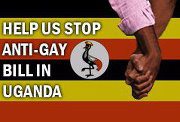
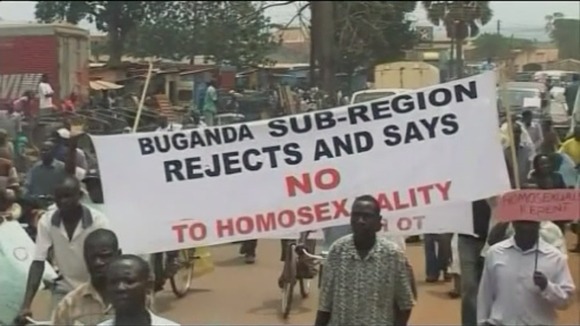

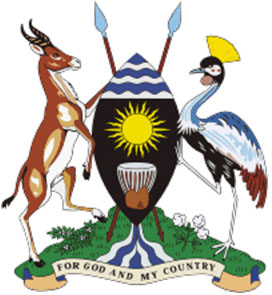
 Related articles
Related articles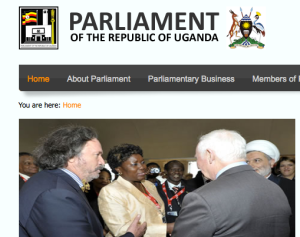



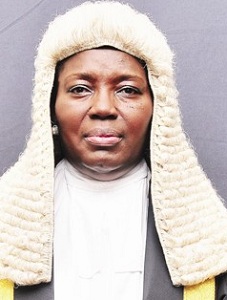

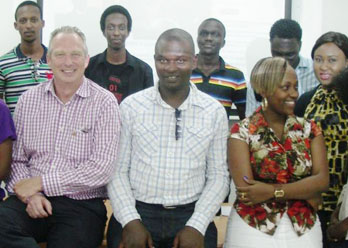
 Foundation
for Human Rights Initiative (FHRI) is one of the NGOs that now face a
threat of closure after Ethics and Integrity Minister Rev Simon Lokodo
accused them of promoting homosexuality.
Foundation
for Human Rights Initiative (FHRI) is one of the NGOs that now face a
threat of closure after Ethics and Integrity Minister Rev Simon Lokodo
accused them of promoting homosexuality.